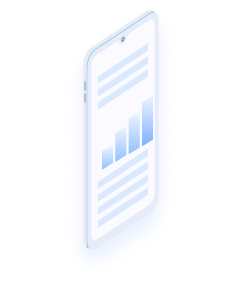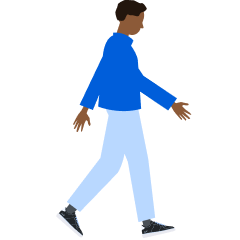Sponsor: CHU Lille
Collaborator: Lundbeck
Duration: 48 weeks

Goal of study: Validate markers of disease progression and gait in the population affected by Parkinson’s disease (PD).

Primary outcome: Home-based gait velocity changes at 48 weeks in each patients’ group and in a control group.

The pathology: Parkinson’s disease (PD) is characterized by a progressive and inexorable impairment of gait in all cases, with different components and temporal evolutions.

Device used:
Patients wear FeetMe® Monitor insoles in hospital and at home, repeatedly. The insoles provide clinicians with valuable data on patient mobility (number of steps per day), activity (apathy) or even the occurrence of paroxysmal events (number of FoGs, falls, near-falls, etc.).

Number of patients: 140 patients with Parkinson’s Disease (PD) divided into several groups according to disease progression and 35 healthy volunteers matched by age and sex (control group).
Sponsor: EALS
Collaborator: BMS
Duration: 9-12 months

Goal of study: Validate the hypothesis that, when compared to the traditional ALS Functional Rating Scale (ALS-FRS®), FeetMe yields improved sensitivity, temporal resolution, and better informs clinical meaningfulness in the context of both personalized and population-based analyses.

Primary outcome: Data collected with the Feetme® insoles should inform about posture, gait, and work against gravity and replace the ALS-FRS® components “walking” and “climbing stairs”.

The pathology: Amyotrophic Lateral Sclerosis (ALS) is a neurodegenerative disease characterized by progressive and irreversible degeneration of upper motor neurons (UMN) and lower motor neurons (LMN).

Usual method: Functionality in ALS is usually assessed by the revised ALS-FRS (ALSFRS-R). This is the most widely used FRS scale used for the global assessment of patients with ALS.

Number of patients: 100 early-stage ALS subjects.

Device used:
Patients wear FeetMe® Monitor insoles with FeetMe® Evaluation smartphone application every time while performing a walking or stairs climbing assessment in a decentralized clinical trial (home only).
Partner: Orkyn’
Duration: 6 months

Goal of study: Show that FeetMe rehabilitation exercises at home are feasible and provide high patient satisfaction.

Primary outcome: Facilitates patients’ performance of daily travel and activities by strengthen patients’ static balance, dynamic balance, lower limbs and walking endurance thanks to FeetMe exercises.

The pathology: Parkinson’s disease (PD) is characterized by a progressive and inexorable impairment of gait in all cases.

Device used:
Patients wear Feetme® Monitor connected insoles with FeetMe® rehabilitation smartphone application while performing rehabilitation exercises (walking…) at home and receive phone call from FeetMe coach. The healthcare professional receives the results of the exercises immediately.

Number of patients: 30 PD patients under apomorphin pump treatment expected the first year.